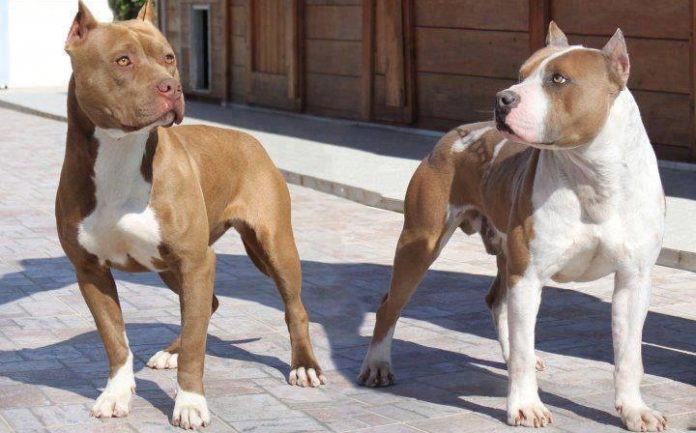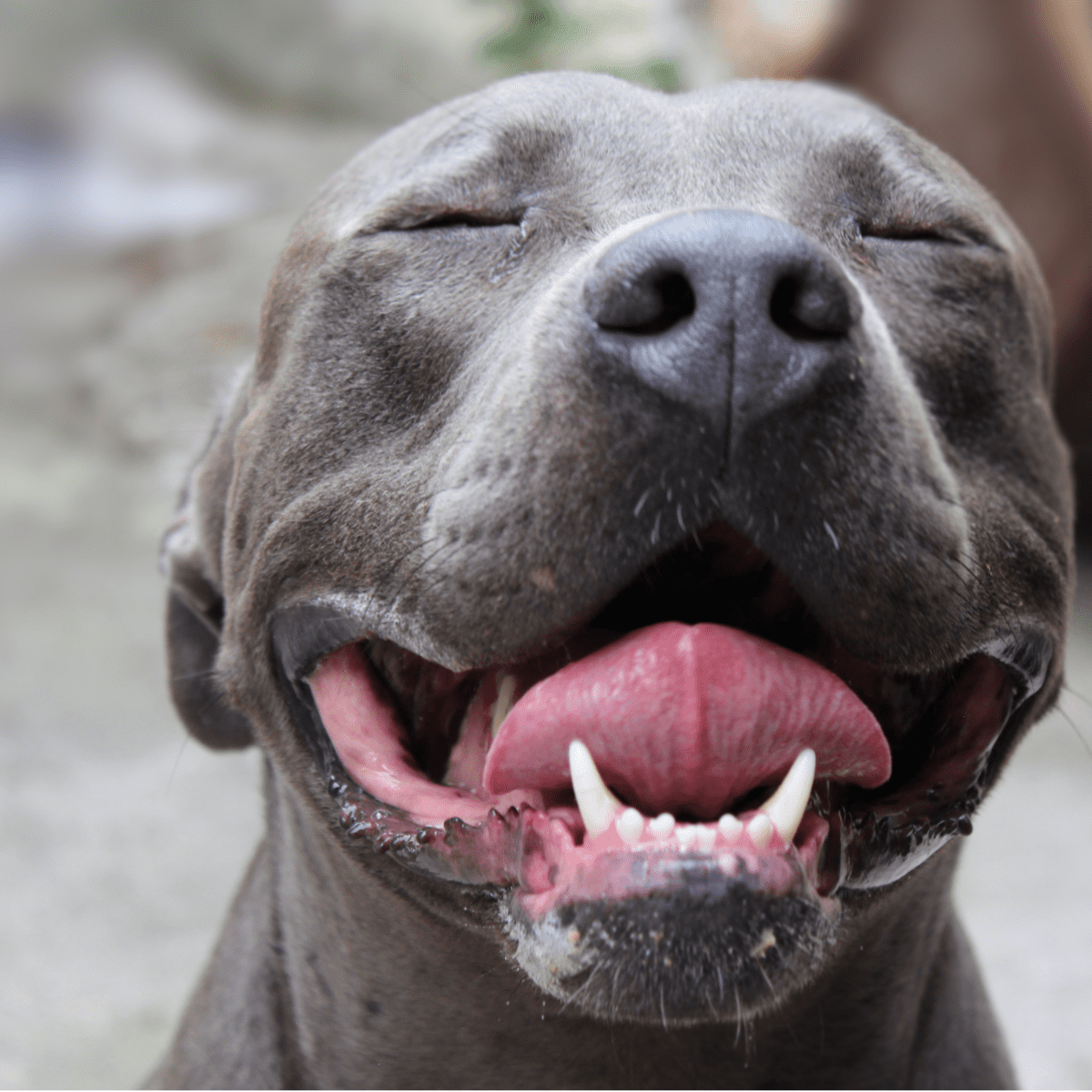Did you know that pitbulls have a reputation for being aggressive, but is there more to this stereotype? Despite their muscular appearance, pitbulls actually rank higher than many popular breeds in terms of temperament and friendliness. So why are pitbulls often labeled as aggressive?
One of the significant factors contributing to the perception of pitbull aggression is their unfortunate history of being bred for dogfighting. In the past, pitbulls were selectively bred for their strength and tenacity in the fighting ring, resulting in certain traits that can be misconstrued as aggressiveness. However, it is important to note that the behavior of any dog, including pitbulls, is heavily influenced by their upbringing, training, and socialization. Stereotyping an entire breed based on historical actions can lead to misconceptions and unfair prejudices. By focusing on responsible ownership, proper training, and positive socialization, we can challenge these stereotypes and showcase the true nature of pitbulls.
Discovering why Pitbulls can display aggression requires understanding several factors. These dogs have a strong inclination towards loyalty and protectiveness, but aggression can stem from various causes, including poor socialization, neglect, or mistreatment by humans. It is essential to provide them with proper training, socialization, and a loving environment. A balanced and positive approach to their upbringing can help prevent aggressive behavior.

Why Pitbulls Can Exhibit Aggressive Behavior: Understanding the Factors
Pitbulls have often been stereotyped as aggressive dogs, but it’s essential to understand that aggression in any dog breed is influenced by various factors, including genetics, environment, and socialization. In this article, we will delve into these factors and shed light on why pitbulls may, at times, exhibit aggressive behavior. By gaining a deeper understanding, we can work towards promoting responsible ownership and reducing the prevalence of aggressive behavior in these dogs.
Genetic Influences on Aggression in Pitbulls
A significant factor contributing to the perception of pitbull aggression is their genetic makeup. It’s important to note that not all pitbulls exhibit aggressive behavior, as temperament varies among individuals. However, certain genetic traits can predispose pitbulls to be more prone to aggression. Some of these traits include a strong prey drive, territorial instincts, and the potential for dog aggression.
Pitbulls were originally bred for activities like bull-baiting and dog fighting, which required a certain level of aggression. Over time, responsible breeders have focused on producing pitbulls with better temperaments and reduced aggression. Nevertheless, certain bloodlines or irresponsible breeding practices may still contribute to the prevalence of aggressive tendencies in some pitbulls.
It’s crucial to remember that genetics alone do not determine a dog’s behavior. Environmental factors and socialization play significant roles in shaping a pitbull’s temperament and behavior.
The Role of Environmental Factors in Pitbull Aggression
While genetics lay the foundation for a pitbull’s behavior, their environment plays a crucial role in determining how these traits manifest. Growing up in a negative or abusive environment can increase the likelihood of aggressive behavior in pitbulls. Lack of socialization, isolation, and exposure to violence or neglect can all contribute to the development of aggressive tendencies.
Furthermore, inadequate exercise and mental stimulation can lead to pent-up energy, which may manifest as aggression. Pitbulls are active and intelligent dogs that require regular physical and mental stimulation to thrive. When their needs are not met, behavioral issues, including aggression, can arise.
It’s vital for pitbull owners to ensure they provide a safe, nurturing, and positive environment for their dogs. A loving and structured setting, coupled with proper training and socialization, can significantly reduce the likelihood of aggressive behavior.
Socialization and Pitbull Aggression: The Importance of Early Experiences
Proper socialization plays a critical role in shaping a pitbull’s behavior and temperament. Early experiences and exposure to different people, animals, environments, and stimuli during a pitbull’s critical socialization period (generally between 3 and 14 weeks of age) are pivotal in preventing aggression and fear-related issues.
A well-socialized pitbull learns to navigate the world confidently, responding appropriately to various situations and stimuli. They become accustomed to different sounds, sights, and even other animals, which helps them feel secure and reduces the likelihood of exhibiting aggression out of fear or anxiety.
However, if a pitbull is not adequately socialized during this critical period, they may develop fear-based responses and exhibit aggression when faced with unfamiliar situations or stimuli.
Overcoming Pitbull Aggression: Training and Responsible Ownership
Pitbulls, like any other dog breed, require proper training, guidance, and responsible ownership to cultivate desirable behaviors and prevent aggression. Pitbull owners should prioritize positive reinforcement training methods, using rewards and praise to encourage good behavior.
Consistency, patience, and clear communication are essential when training a pitbull. Avoid using punishment-based techniques, as these can escalate aggression and damage the bond between owner and dog.
Responsible ownership also involves providing ample physical and mental stimulation, meeting a pitbull’s exercise needs, and ensuring regular veterinary care. A well-rounded and happy pitbull is less likely to exhibit problem behaviors, including aggression.
The Environmental Impact on Pitbull Aggression: Friends or Foes?
While genes provide a foundation, pitbulls’ early environment plays a significant role in shaping their behavior. Research has shown that pitbulls raised in nurturing, positive environments are less likely to exhibit aggressive tendencies. Conversely, those subjected to abuse, neglect, or lack of socialization have a higher prevalence of aggression. To understand why pitbulls can be aggressive, it’s vital to consider both nature and nurture.
Genetic Factors:
- Prey drive
- Territorial instincts
- Potential for dog aggression
Environmental Factors:
- Abusive or negative environment
- Lack of socialization
- Insufficient exercise and mental stimulation
Socialization: Building the Foundation for a Well-Balanced Pitbull
The importance of socialization cannot be overstated when it comes to raising a well-behaved and non-aggressive pitbull. Early experiences and exposure to various stimuli during the critical socialization period (between 3 and 14 weeks) play a crucial role in preventing aggression and fear-based behaviors. By introducing pitbulls to different people, animals, and environments, owners can help them develop confidence and adaptability.
Training and Responsible Ownership: The Keys to a Well-Behaved Pitbull
Training is essential for all dogs, including pitbulls. Pitbull owners should focus on positive reinforcement methods, rewarding good behavior and using clear communication. Consistency, patience, and providing outlets for exercise and mental stimulation are vital in cultivating a well-behaved pitbull. A responsible owner ensures ample socialization, regular veterinary care, and meeting the dog’s physical and emotional needs.
The Importance of Education and Understanding
It’s crucial to educate ourselves and dispel the misconceptions surrounding pitbulls. By understanding the factors that contribute to aggressive behavior in these dogs, we can work towards promoting responsible ownership, positive training methods, and reducing the prevalence of aggression. Pitbulls are not inherently aggressive, and with the right environment, socialization, and training, they can be loving and well-adjusted pets.
Key Takeaways: Why is Pitbull Aggressive?
- Pitbulls can exhibit aggression due to genetics, upbringing, or mistreatment.
- Training and socialization are crucial factors in preventing aggression in pitbulls.
- Proper exercise and mental stimulation can help reduce aggression in pitbulls.
- Understanding and addressing fear and anxiety can also play a role in curbing aggression.
- Pitbull aggression can be managed through responsible ownership and seeking professional help if needed.
Frequently Asked Questions
When it comes to the behavior of pitbulls, there are a few common questions that people often have. Let’s address some of these concerns and provide answers that shed light on why pitbulls may exhibit aggressive behavior.
1. Are pitbulls naturally aggressive?
Pitbulls are not naturally aggressive. Like any other dog breed, they can be a product of their environment, training, and socialization. Aggression in pitbulls can often be traced back to a lack of proper training, socialization, or abusive treatment. Additionally, certain individual dogs may have genetic predispositions that make them more prone to aggressive behavior. However, it’s important to remember that not all pitbulls are aggressive, and responsible ownership plays a significant role in a dog’s behavior.
If a pitbull displays aggression, it is crucial to investigate the underlying causes, which may include fear, territorial instincts, or a response to perceived threats. With proper training, attention, and care, aggressive tendencies can often be corrected or managed.
2. Do pitbulls have a higher tendency to be aggressive compared to other breeds?
While pitbulls have often been associated with aggression, it is false to say that they are inherently more aggressive than other breeds. Aggression in dogs is a complex issue influenced by various factors such as genetics, early socialization, training, and environment. Any breed of dog, regardless of its size or breed, can display aggressive behavior if not properly cared for and trained.
It’s important to judge dogs as individuals rather than by their breed. Each dog has its own unique temperament, and generalizations based on breed stereotypes can lead to misunderstandings and unfair biases. Responsible ownership, including socialization, training, and providing a safe and nurturing environment, is key for all dog breeds, including pitbulls.
3. Can aggression in pitbulls be prevented?
Yes, aggression in pitbulls can often be prevented with diligent training, socialization, and responsible ownership practices. Starting training at an early age is essential to establish proper behavior patterns. Socializing pitbulls with other dogs, animals, and people helps them develop positive associations and reduces the likelihood of fear-based aggression.
Additionally, providing a structured environment, establishing consistent routines, and using positive reinforcement training methods can help prevent aggression in pitbulls. It’s crucial for owners to be aware of their dog’s body language and respond appropriately to signs of discomfort or anxiety to prevent the escalation of aggressive behavior.
4. Are there specific types of pitbulls that are more prone to aggression?
There are no specific types of pitbulls that are inherently more prone to aggression compared to others. Pitbull is a term used to refer to several breeds, including the American Pit Bull Terrier, American Staffordshire Terrier, and Staffordshire Bull Terrier. Just like any other breed group, individual temperaments can vary within these breeds.
It’s worth noting that certain traits within specific bloodlines or individual dogs may make them more prone to aggression. However, responsible breeders prioritize temperament and work towards breeding dogs with stable and non-aggressive temperaments. Ultimately, it is not the breed itself that determines aggression, but rather a combination of genetic factors and the way the dog is raised and trained.
5. What steps can be taken to manage aggression in a pitbull?
If a pitbull displays aggression, it’s important to seek professional help from a qualified behaviorist or trainer who specializes in working with aggressive dogs. They can assess the root causes of the aggression and develop an appropriate behavior modification plan tailored to the individual dog.
Management techniques may involve using positive reinforcement training, desensitization and counterconditioning, implementing structure and routines, and providing appropriate outlets for physical and mental stimulation. It’s important to remember that managing aggression requires time, patience, and consistency. With proper guidance and dedicated effort, many pitbulls with aggression issues can experience significant improvement and lead happy, well-adjusted lives.

Summary
Pitbulls can be aggressive due to factors like improper training, abuse, or fear. It’s important to understand that aggression is not a breed characteristic, but rather a result of external influences. Responsible ownership, proper socialization, and positive reinforcement can help prevent aggression in pitbulls. Educating ourselves and others about these dogs can help break stereotypes and create a safer environment for both pitbulls and people. Remember, every dog deserves a chance to show their true loving nature, and pitbulls are no exception.
